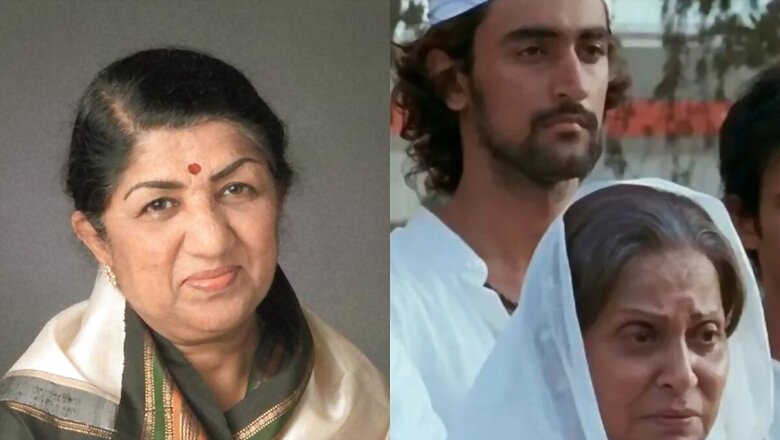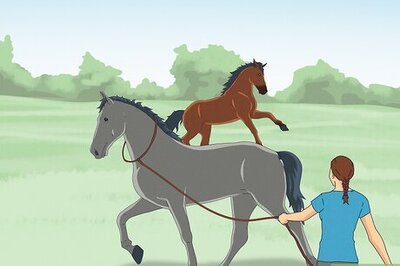
views
Lata Mangeshkar, often referred to as the “Nightingale of India,” left an indelible mark on the world of music with her extraordinary talent and timeless voice. With a career that spanned over eight decades, she recorded thousands of songs in more than 36 Indian languages, showcasing a remarkable versatility that few can match. Her haunting melodies, from the iconic Aayega Aayega in Mahal (1949) to the deeply evocative Luka Chuppi in Rang De Basanti (2006), have resonated across generations, making her a beloved figure in Indian cinema and music.
Filmmaker Rakyesh Om Prakash Mehra, who worked with her on Rang De Basanti (2006), once shared in an interview with O2India ,a heartfelt story about recording the song Lukka Chuppi, composed by A.R. Rahman.
In an chat, Mehra recalled how Mangeshkar insisted on traveling to Chennai for the recording, preferring to be in AR Rahman’s studio instead of having him come to Mumbai. She arrived three days early and wanted to head straight to the studio, even when Mehra suggested she should rest. “After the music and Sargam was made for the song, Lata Mangeshkar called me and asked, “Son, may I go to Chennai to record?’ I told her, “AR Rahman told me he would come to Mumbai, you please don’t trouble yourself.’ She said, “No, it’s better to go to his space.’ That’s how humble she was,” he recalled.
He went on to add, “She went three days before the recording date. And as soon as she reached the airport in Chennai, she wanted to go straight to the studio. I requested her, ‘Please go to the hotel and rest for some time’. But, no, we went to the studio where AR Rahman received her and straightaway she said, let’s hear the composition. After hearing, she said, ‘Can we rehearse it?’ She got the composition recorded in a cassette, which she could hear on her walkman and she rehearsed for three days.”
Once there, she was eager to hear the song and rehearse. Despite being in her late 70s, she stood for eight to ten hours to record, insisting on adjusting the mic height so she could sing while standing. Lata Mangeshkar performed entire verses rather than just repeating lines, making the experience feel magical for Mehra, who felt he was witnessing greatness. Rakyesh Om Prakash Mehra remembered, “On the fourth day, when she came to record the song, she asked, ‘Why the mic is placed so low? It should be adjusted higher.’ When we said, ‘We thought you would sit and record’, she said, ‘No, I can’t sit and sing.’ Then she started jamming with Rahman. This went on for the next 8 to 10 hours and she refused to sit on the chair this whole time. Usually what happens, when you want to sing a particular word in a particular manner, singers sing that word again, but she would sing the entire para–all the four lines or six lines. It felt like I was in the Disney World witnessing greatness on both sides.”
Lata Mangeshkar passed away in 2022 at the age of 92.

















Comments
0 comment